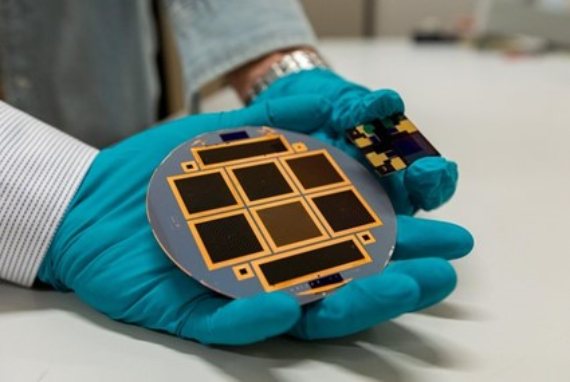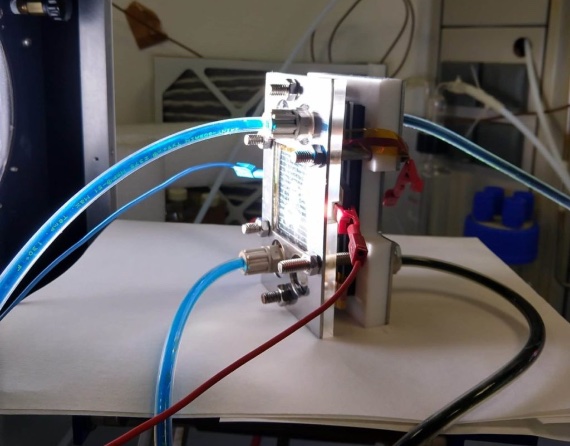Ignacio Mártil de la Plaza, Professor of Electronics at the Complutense University of Madrid talks to science journalist Patricia Fernández de Lis about the challenges facing society in the quest for a more sustainable energy model.
What do you think is the biggest challenge we face as a society to achieve a new, more sustainable energy model?
I believe that greenhouse gas emissions in general, and carbon dioxide emissions in particular, must be reduced. This has to be achieved through two essential forward steps: changing our energy consumption habits and our mobility habits.
How do we change these habits?
By realizing that this is a problem where the solution depends partly on us. Not entirely, but at least partly.
And what can we do as individuals?
We could do some things that are quite uncomfortable–for example, in the realm of mobility, which is the main challenge facing our society. Those of us who live in large cities should use a car only when absolutely essential. We should use alternative transport whenever we can. Regarding leisure, I believe any air travel to somewhere less than 400 km from our destination should be banned.

Every day,120,000 to 130,000 airplanes fly around the planet–up to even 200,000 at certain times of the year. Each airplane consumes tons of kerosene per second.
Besides energy consumption habits, what other challenges do we as a society have to change?
Some aspects are not completely under our control, such as public policies that promote the use of non-polluting energies and the implementation of sustainable solutions, such as electric mobility or hydrogen vehicles. Although these solutions are necessary, it is also true that their cost can be high.
Why are they expensive?
The European car fleet reached a total of 270 million vehicles at the end of 2019, of which 30 million were in Spain. If we consider the idea of replacing these vehicles with electric vehicles, the total cost would be significant. Even at a moderately low price of 25,000 euros per electric vehicle, the total figure for Europe would be 7 trillion euros, while in Spain alone it would reach 750 billion euros. This shows that the transition to electric mobility still has some way to go before it could be affordable.

And you think that’s the key problem? The fact that it’s very expensive? Or are there other obstacles?
Besides the price of electric vehicles, which should be more affordable to encourage their use, even more important is the need for a wide network of battery charging stations, like today’s gas stations. But these are just some of the challenges to overcome in driving the transition to sustainable mobility.
One of the goals of the EU Recovery Plan is to achieve the decarbonization of the European economy. Do you think that’s possible? And how can it be done?
In my view, the transition to sustainable mobility is an achievable goal, in particular due to the growing political commitment that is emerging at the EU level. Renewable sources currently generate about 25% of the electricity consumed worldwide. If we add nuclear energy production, this percentage rises to between 30% and 35%. In some countries, it even exceeds 50%. These data points show that sustainable energy production is a feasible and achievable challenge.”

Replacing this percentage with renewable sources is an achievable short-term goal within a period of 10 to 15 years. There is a clear political will in the EU already, and steps are also being taken elsewhere, such as China and the United States. However, the impact of these initiatives at the global level remains to be seen.
What technical innovations do you think science can bring to this energy transition?
Today, we have three advanced renewable technologies where Spain stands out as a world leader: photovoltaic solar energy, thermoelectric energy and wind power. These technologies already produce electricity efficiently and at competitive prices. In fact, the International Energy Agency, an institution that has no stake in renewables, has stated that solar photovoltaic energy is currently the cheapest way to produce electricity worldwide.
Any other innovations? Anything we don’t know about or haven’t heard of that stands out to you?
Perovskites are a promising material for the development of more efficient photovoltaic panels. Currently, the average efficiency of photovoltaic solar panels is about 20%, so an efficiency of 30% would be a breakthrough. However, it’s key to bear in mind that large-scale production and efficiency in real conditions are still challenges to overcome before perovskite panels can be supplied on a mass scale.

In other words, we could reach that dream moment when solar energy would truly compete, on an equal footing, with the most polluting energies in our current mix.
Renewable energies are an important energy source for the future, but they present challenges such as intermittency and unpredictability. However, climate models enable us to predict energy production approximately and progress in the field of storage is helping to solve the problem of lack of storage capacity. Moreover, in the field of solar photovoltaics, innovative materials such as perovskites herald surprisingly high efficiency and zero emissions. There is still a way to go, but progress in renewable energy technology is promising.
What do you think is the most urgent issue facing the planet right now in terms of sustainability? What would be for you the most urgent, the key concern?
For me, in short, mobility is a vital aspect in the transition to a more sustainable future. The search for solutions in the battery field is key to making progress here. We should promote the development of more durable, cheaper and more sustainable batteries, and explore the possibility of using materials other than lithium.

If I had any decision-making power in our country, I would lose every waking hour of my life so that as many battery factories, hydrogen vehicle factories, and so on, could be set up in this country. Focusing on Spain, we have a problem that we cannot forget: today we produce almost exclusively cars. In other words, we have tourism and we have cars. We have nothing else. So we can’t lose a single one of the factories we have, and in order not to lose them I think that forward-looking approach would be vital.
Comments on this publication